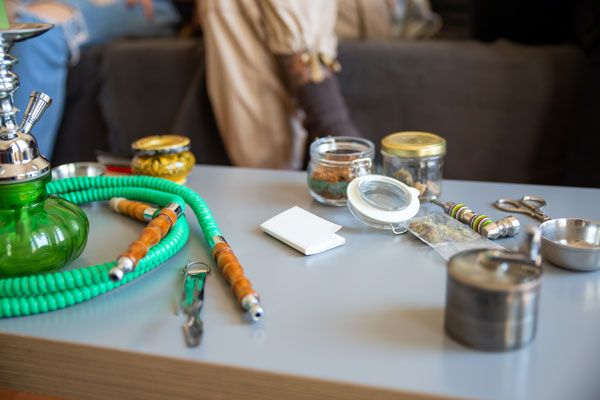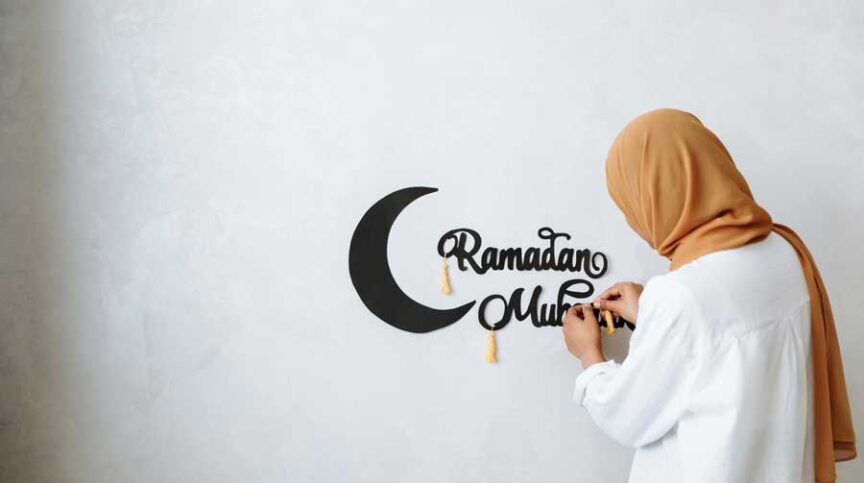As of July of this year, 19 states and Washington D.C. have legalized the recreational use of marijuana. Another 13 states have decriminalized it. What many people don’t know or don’t think about is that nowhere is it legal for individuals younger than 21 years old. Muslim parents and communities should know about the use of marijuana by Muslim youth, its illegality, and its harmful effects. According to an article from the National Institute of Health, “Effects of Cannabis on the Adolescent Brain,” use of marijuana by adolescents in the U.S. is second only to alcohol use. The article then warns about the potential harm to youth, stating that those “who engage in heavy marijuana use often show disadvantages in neurocognitive performance, macrostructural and microstructural brain development, and alterations in brain functioning.”
Muslim parents are perhaps unaware of the prevalence of marijuana use by teens. The article cited above notes that of high school seniors surveyed, 23 percent reported use of marijuana in the previous month. The Institute of Muslim Mental Health did a survey in 2018 involving 216 Muslim respondents, ages 16 through 25. The survey found that almost half had used drugs. Most interesting is that of those respondents who reported using drugs, 85 percent indicated that religion was important or very important to them. So, these young people were not drawn to experimenting with drugs because they had fallen away from their belief in, or practice of, Islam. Many Muslim adults would presume that this would be the case with youths who try drugs. There are obviously other predisposing factors such as the easy availability of marijuana, peer pressure, and, in some cases, an attempt to find a way to cope with stresses of life.
The Negative Impact on a Developing Brain
The brain is still developing until the age of 25. During this period there are many complex processes and developmental changes occurring in the brain. The effect of frequent usage of marijuana in the adolescent years shows negative impact on attention, memory, verbal IQ, impulse control, and decision-making. This can lead to poor academic performance, higher dropout rates, difficulty with getting and sustaining employment, and lower overall life satisfaction.
Though the frequency and quantity of consumption plays a vital role, the fundamental fact is that usage of marijuana can impair neurological functions and can have long-term ramifications for quality of life. While much of the research has focused on heavy consumption and its effects on the brain, there is still no clear indication of a safe amount to consume. With many states legalizing the recreational use of this drug and with new ways of consuming it, such as edibles, young people are more disposed to experiment with marijuana. And so, Muslim parents and their youth should be educated about the harmful effects. This may act as a deterrent when young Muslims are faced with the opportunity to try marijuana.
Practical Steps to Take — Educating Our Youth
So how can we effectively educate our Muslim youth about the dangers and detriments of this legalized drug? And what steps can be taken as a foundation so that our children will listen?
• Parents should establish a strong and clear Islamic foundation in the home. This requires parents to be the best role models for their children. When parents cross behavioral boundaries such as acting in ways that contradict Islamic teachings — impatient, insulting, being quick to anger, judgmental, engaging in gossip or backbiting, as just a few examples — they open the door for their children to think that they too can disregard Islamic values, prohibitions, and proper behaviors.
• From the youngest age, children need to know the rules of the house and that all family members obey the rules that apply to them. Establishing and abiding by rules in the family should be done in a corroborative and positive way. Rules must not be presented or applied as dictatorial, arbitrary, or oppressive.
• Establish open and honest communication with your children from an early age and build mutual trust with them to let them know they can confide in you and that you will listen and try to understand, rather than just judging them and throwing dogmatic talking points at them.
• Talking about drug use and pointing out its harmful effects must start early and be an open-ended and sincere discussion in the family.
• Parents too often have limited knowledge about marijuana and its harmful effects; they also may be unaware of how many states have legalized its recreational use. Parents have to take bold steps in educating themselves before they can educate their children. There are countless articles online that detail the harm of marijuana by adolescents and teens.
• Parents have to be involved, actively engaged, and aware of their children’s friends, activities, and routines. Encourage your children to invite their friends to your home so that you can get to know them.
• Encourage children to engage in extra-curricular activities or hobbies of their choice so that they do not have too much leisure time.
Islamic Teachings About Intoxicants
Most important, ensure that your children know the Islamic teachings about intoxicants. Muslim parents have this strong and authoritative tool available to them: the teachings of Islam.
We are told in the Qur’an: “They ask you about intoxicants and games of chance. Say, ’In them is a great sin, and benefits for the people. But the sin of them both is greater than the benefit” (2:219). The prohibition of intoxicating drugs is also conveyed in verse 5:90. Muhammad Asad’s commentary on this verse states: “According to all the lexicographers, the word khamr (derived from the verb khamara, ‘he concealed’ or ‘obscured’) denotes every substance the use of which obscures the intellect, i.e., intoxicates. Hence, the prohibition of intoxicants laid down in this verse comprises not merely alcoholic drinks, but also drugs which have a similar effect. The only exception from this total prohibition arises in cases of ‘dire necessity’ (in the strictest sense of these words), as stipulated in the last sentence of verse 3 of this surah: that is to say, in cases where illness or a bodily accident makes the administration of intoxicating drugs or of alcohol imperative and unavoidable.”
Allah instructs us in the Qur’an to use our aql, the intellect, the faculties of reason and good judgment. He emphasizes in many places throughout the Qur’an that we are to ponder and reflect; Allah SWT refers to those who do so as the people of understanding. In addition, we are told, “It is He who has appointed you vicegerent on earth…” (6:165). This verse lays emphasis on the supremacy of humankind over all of Allah’s creations on this earth. With this comes a huge responsibility which entails the use of one’s intellect and ability to reason and make rational and just decisions so as to establish Allah’s deen, to conserve the balance of nature and the environment, protect and use wisely the natural resources available to us, and to treat with compassion and fairness all the creatures of the earth. And, of course, to ensure that there is social justice and protection of human rights throughout society.
Intoxication clouds and diminishes all the faculties required for discharging these responsibilities. Sobriety and soundness of mind are essential to perceive and engage with the reality of the world in an effective and skillful way, while the “high” of marijuana distorts things, including perception by the senses as well as ideas and self-concept. It makes things appear out of their natural proportions. The “high” makes one want to just lounge about, sluggish and lost in an intoxicated reverie. But we are meant to stand tall, fulfill all our responsibilities as vicegerents, and be morally and spiritually active and dynamic.
“O humankind! What has seduced you from your Lord Most Beneficent? He who created you, fashioned you in due proportion, and gave you an upright form (Qur’an 82:6-7).
We have to talk to our youth about drugs in an open and honest way. We can help them see that Allah SWT has instructed us to stay away because there is more harm than benefit in anything that intoxicates; and we can facilitate the abilities of our youth to choose a healthy lifestyle, a life oriented and anchored in Islam and its guidance.





